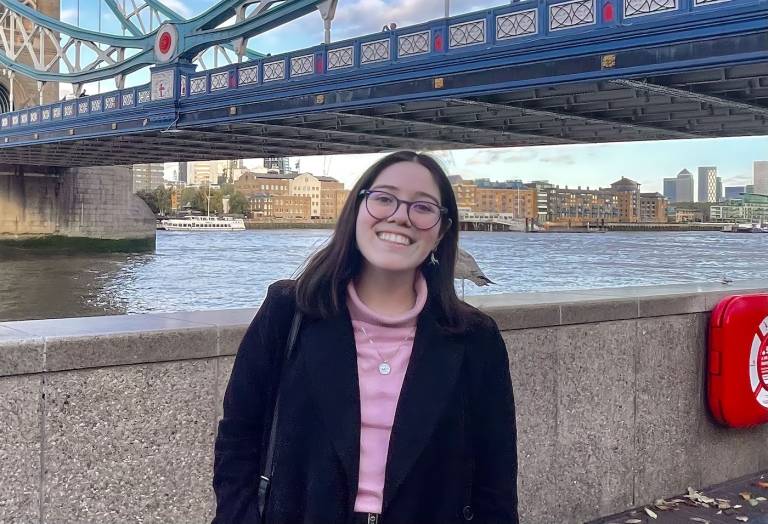Name: Carla Madrid Canales
Country of Domicile: Chile
Degree: Dental Public Health MSc
What are you studying, why are you interested in this subject and what do you plan to do in the future?
I’m a Chilean dentist currently pursuing a MSc in Dental Public Health. Throughout my experience as a dentist and undergraduate student I realised that oral diseases are a major global public health problem marked by socioeconomic inequalities.

This unfair reality made me want to take action by being part of the discussion and proposing solutions as a Dental Public Health professional.
In addition, during my undergraduate studies I was involved in research projects focusing on oral health in children and patients with special needs. This experience made me realise that in the future I want to become an oral policy maker to address oral health inequalities by improving the evidence to support the dental health care of these groups of people.
If you could go back in time to before you applied to UCL would there, be any advice you would give yourself about applying for your masters?
First, I think it’s important to evaluate and deeply read the Master website to see if it really makes sense to you and connects with your plans: review and read the programme, the experiences of other students, the modules, professors and the research topics they have been working on. I was between two UCL programmes and this analysis helped me to know that the DPH MSc was just what I was looking for.
Secondly, and talking about practical issues, check what documents are required and whether it’s necessary to request other documents from your university or government, many times these procedures take time. And finally, don't be afraid to ask for letters of recommendation, but ask for them in good time!
What was your biggest challenge to coming to study in the UK and how did you overcome this?
The language has been my biggest challenge. The first few weeks I found it very difficult to communicate fluently with my classmates and many times I preferred not to participate in the discussion in lectures because I didn’t feel confident with my speaking. I was relieved when I knew experience of other students and lectures, that English is not their first language either and despite this, they were able to overcome the language barrier. UCL also offers different free courses to improve English skills and I’ve taken the opportunity to attend these. But I think the most important thing is to try to speak and write without fear. Most of the students don't have the same level of English and therefore it doesn't matter if you make a mistake, everyone will be very respectful and every time you try to speak you will have learnt something new.
Have you discovered any hidden gems during your time at UCL and in London?
The wide variety of clubs and societies in UCL. It’s a great way to get away from academic obligations and meet new people with the same interests as you. There are hundreds of different options for all tastes, I especially recommend the Salsa, Pole Fitness and Yoga societies. I also strongly recommend going to Phineas on Tuesdays to the Jazz Jam organised by the Jazz Society, it’s a show on another level!
In London I recommend walking (but always with an umbrella in your backpack) and enjoy the journey. There is a lot to see in the streets and there are always events going on. The parks are beautiful, even more so in autumn. And take the opportunity to visit the museums, they are free and many of them are open late on Fridays.
What would it surprise people to know about you?
That my favourite part of visiting museums is taking pictures of the dogs and cats that appear in the paintings, my phone gallery is full of them.
 Close
Close

